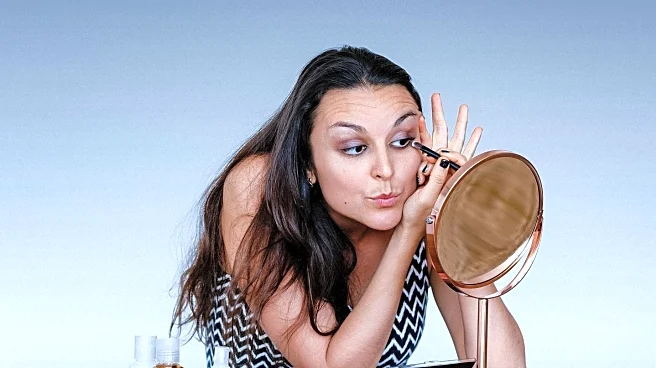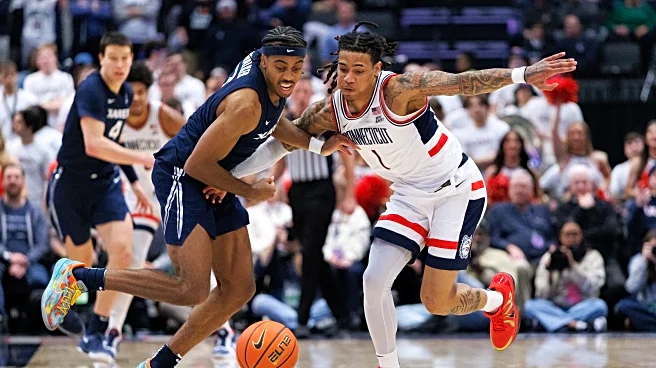What's Happening?
The cosmetics industry is witnessing a surge in innovation aimed at combating hair loss, a prevalent concern affecting a younger demographic. According to data from Philip Kingsley, a British trichological hair and scalp care brand, nearly half of individuals experiencing noticeable hair loss are aged between 18-34 years. This trend is attributed to factors such as inadequate nutrition, as noted by Gustav Fouche, a hair and scalp health expert. The industry is responding with new products designed to restore confidence and address the psychological impact of hair loss, which affects self-esteem and personal styling choices.
Why It's Important?
The increasing incidence of hair loss among younger individuals highlights a significant shift in beauty and health concerns. This trend has implications for the cosmetics industry, which is adapting by developing targeted solutions to meet the needs of this demographic. The psychological impact of hair loss, including diminished self-esteem and altered personal styling, underscores the importance of effective treatments. As the industry innovates, it may see growth in product lines focused on hair health, potentially influencing market dynamics and consumer preferences.
What's Next?
The cosmetics industry is likely to continue its focus on developing advanced hair care solutions, with potential collaborations between beauty brands and health experts to address underlying causes of hair loss. As awareness grows, consumers may demand more transparency and efficacy in products, driving further innovation. Additionally, the industry might explore educational campaigns to inform the public about hair health and preventive measures, potentially leading to a broader shift in beauty standards and practices.
Beyond the Headlines
The rise in hair loss among younger individuals may prompt deeper investigations into lifestyle factors contributing to this trend, such as diet and stress. Ethical considerations regarding product claims and consumer expectations could become more prominent, influencing regulatory standards and marketing strategies. Long-term, this focus on hair health might lead to a cultural shift in beauty norms, emphasizing holistic well-being over aesthetic concerns.










